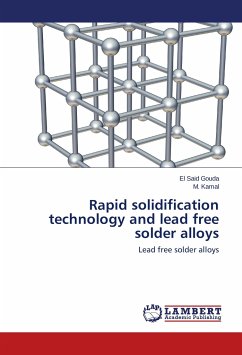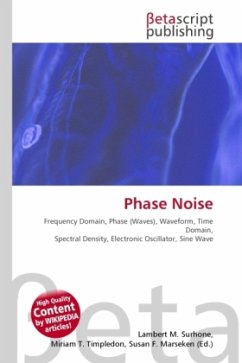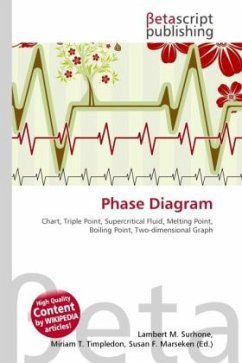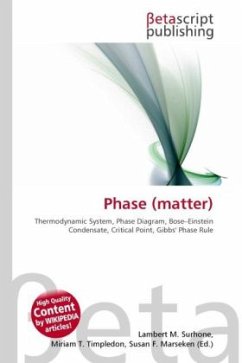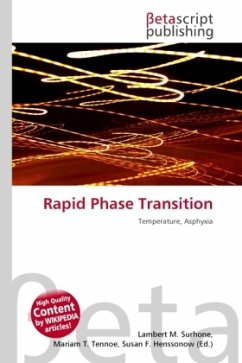
Rapid Phase Transition
Versandkostenfrei!
Versandfertig in 6-10 Tagen
19,99 €
inkl. MwSt.

PAYBACK Punkte
10 °P sammeln!
High Quality Content by WIKIPEDIA articles! Rapid phase transition or RPT is a phenomenon realized in liquefied natural gas (LNG) incidents in which LNG vaporizes violently when being in contact with water causing what's known as a physical explosion or cold explosion. During such explosions there is no combustion but rather a huge amount of energy is transferred in the form of heat from water to the LNG at a temperature difference of about 175 degree Celsius. Liquefied natural gas or LNG is a natural gas being liquefied at atmospheric pressure and -161.5 oC. It is odorless, tasteless, colorle...
High Quality Content by WIKIPEDIA articles! Rapid phase transition or RPT is a phenomenon realized in liquefied natural gas (LNG) incidents in which LNG vaporizes violently when being in contact with water causing what's known as a physical explosion or cold explosion. During such explosions there is no combustion but rather a huge amount of energy is transferred in the form of heat from water to the LNG at a temperature difference of about 175 degree Celsius. Liquefied natural gas or LNG is a natural gas being liquefied at atmospheric pressure and -161.5 oC. It is odorless, tasteless, colorless, and not poisonous but causes asphyxia. Due the cryogenic temperature it has, it can cause frost bites. If this extremely cold LNG is mixed with water, heat energy is transferred from water (sea water has an average temperature of 15 oC) rapidly and vaporizes it from the liquid state into the gaseous state and a phenomenon of rapid phase transition is resulted.



